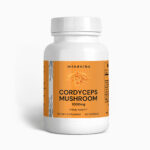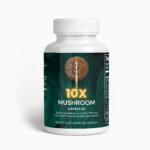
“Beyond Diet: Supplements for Optimal Nutrition and Well-being”
In today’s world, with our busy schedules and on-the-go lifestyles, it can be challenging to get all the nutrients we need from our diets alone. That’s where dietary supplements come in – they can provide us with the extra boost we need to reach our nutritional goals. But with so many options on the market, it can be overwhelming to know which ones to choose. In this article, we aim to explore some of the best dietary supplements that go beyond just providing basic nutrition. We want to convince you that these supplements can have a significant impact on your overall health and well-being, and potentially help you reach your fitness and lifestyle goals. So, let’s take a deep dive into what’s available and why each of them deserves a spot in your daily routine.
1. The Importance of Proper Nutrition for Optimal Health and Well-being
Proper nutrition is crucial for maintaining optimal health and well-being. Our bodies rely on a balanced diet to function properly, and without it, we put ourselves at risk for a range of health issues. A healthy diet can help to reduce the risk of chronic diseases, such as heart disease, diabetes, and cancer, and can also improve our mental clarity and overall quality of life.
There are several key components of a healthy diet, including a variety of fruits and vegetables, lean proteins, and whole grains. These foods provide our bodies with essential vitamins, minerals, and fiber that help to support our immune systems, promote healthy digestion, and keep our bodies running smoothly. It’s also important to limit our intake of processed foods, refined sugars, and unhealthy fats, which can increase our risk of developing chronic diseases and lead to weight gain.
In addition to eating a healthy diet, it’s also important to stay hydrated and to get plenty of exercise. Drinking plenty of water throughout the day can help to flush toxins from our bodies and keep us feeling energized, while regular exercise can help to strengthen our muscles and improve our cardiovascular health. With the right mindset and a commitment to making healthy choices, anyone can achieve optimal health and well-being through proper nutrition.
2. Why Supplements Are Essential for Today’s Diet
Supplements have become a buzzword for modern dieticians and health enthusiasts. While supplements are not a replacement for a healthy diet and lifestyle, they are an essential tool for better health. Here’s why:
Decline of Nutrient-Dense Foods: Modern agriculture practices, long travel distances, and food processing practices have led to the decline of nutrient-dense foods. As a result, even if you are eating a balanced diet, you may not be consuming enough of essential vitamins, minerals, and other vital nutrients. Supplements bridge this gap and help you ensure that you get all the necessary nutrients your body needs.
Active Lifestyle: Today’s lifestyle demands more energy and nutrients than ever before. Between work, family, and social commitments, finding the time to prepare healthy meals and staying active can be challenging. Adding supplements to your diet can help you overcome some of these challenges by providing the energy and nutrients you need to keep up with your active lifestyle.
Special Needs: There are times when you may have special needs that cannot be met through diet alone. This may include pregnancy, illness, or recovery from an injury. In such cases, supplements can help you meet your unique nutritional needs without requiring drastic dietary changes.

3. Top Supplements You Need for Optimal Nutrition and Health
Nutritional supplements are an essential part of a healthy lifestyle – they improve immunity, energy levels, and general health. Here are three supplements that are sure to up the ante on your nutrition game:
- Omega-3 Fatty Acids: Fish oil supplements are an excellent source of Omega-3 fatty acids, which are essential for heart and brain health. They reduce inflammation, lower blood pressure, and improve cholesterol levels.
- Probiotics: These good bacteria live in our gut and help promote healthy digestion, reduce inflammation, and improve our immune systems. Taking probiotics in supplement form can improve conditions like IBS, eczema, and mental health disorders like anxiety and depression.
- Vitamin D: This sunshine vitamin is essential for bone strength, immune support, and mental health. Most people don’t get enough vitamin D from their diet or sun exposure, so a supplement is essential. Research shows that taking Vitamin D supplements can improve mood, reduce the risk of cancer, and promote weight loss.
Remember, supplements work best when taken in conjunction with a healthy diet and regular exercise. Before taking any supplements, we encourage you to consult a doctor to ensure they’re safe and fit your health goals.

4. Vitamins and Minerals: The Foundation of a Healthy Body
Vitamins and minerals are essential nutrients that our body needs to function properly and stay healthy. They perform a wide range of functions, such as boosting the immune system, maintaining good vision, building strong bones, and producing red blood cells. Without sufficient vitamins and minerals, our body can become susceptible to various diseases and health problems.
Some of the essential vitamins that we need include vitamin A, B, C, D, E, and K. Each vitamin plays a unique role in supporting our body’s overall health. For instance, vitamin A is important for maintaining good vision, while vitamin C is crucial for boosting the immune system to fight off infections. On the other hand, minerals like calcium, iron, and potassium are necessary for proper bone health, blood clotting, and muscle function.
To maintain optimal health, it’s important to ensure that we are getting enough of these essential nutrients in our diet. Eating a varied diet that includes plenty of fruits, vegetables, whole grains, lean protein, and low-fat dairy products can help ensure that we are getting the necessary vitamins and minerals. In some cases, supplements may be recommended, especially for people who have certain health conditions or are at risk of nutrient deficiencies. Taking supplements should be done under the guidance of a healthcare professional.

5. Protein Powders: Ideal for Athletes or Anyone Looking to Build Muscle
For someone looking to build muscle or an athlete looking to fuel their body, protein powders are an ideal supplement. Not only are they convenient and easy to consume, but they’re also an effective way to provide your body with the essential nutrients it needs after a workout.
When choosing a protein powder, it’s important to consider your specific goals and dietary needs. Whey protein, for example, is a complete protein that is quickly absorbed by the body and ideal for muscle recovery. On the other hand, soy protein is a good option for vegetarians or those with dairy allergies. You may also want to consider a blend of protein sources such as casein and egg protein for a slow release of nutrients over time.
It’s important to note that while protein powders can be incredibly helpful for building muscle and enhancing athletic performance, they should never be a replacement for a balanced diet. Along with your protein supplement, be sure to consume a variety of whole foods including fruits, vegetables, and whole grains to ensure that your body is getting all the nutrients it needs to perform at its best.
6. Omega-3 Fatty Acids: The Best Fats for Your Heart and Brain
It’s no secret that not all fats are created equal. Some fats, like Omega-6 fatty acids, can actually be harmful to our health in excess. But there’s one type of fatty acid that stands out as the best for both our hearts and brains: Omega-3 fatty acids.
Omega-3s are essential fatty acids that our bodies can’t produce on their own, meaning we need to obtain them through our diet. Luckily, there are plenty of sources of Omega-3s, including fatty fish like salmon and mackerel, walnuts and flaxseeds, and supplements made from fish oil.
So what makes Omega-3s so beneficial? For starters, they have been shown to lower levels of triglycerides in the blood, which can reduce the risk of heart disease. They also have anti-inflammatory properties that can help alleviate joint pain and reduce the risk of chronic diseases like arthritis and even cancer. But perhaps most importantly, Omega-3s play a crucial role in brain health, promoting better cognitive function and possibly even reducing the risk of dementia and Alzheimer’s disease.
- Include Omega-3-rich foods in your diet, such as:
- Fatty fish like salmon, mackerel, and sardines
- Walnuts and flaxseeds
- Chia seeds
- Consider adding a fish oil supplement to your daily routine if you don’t get enough Omega-3s in your diet.
- Be mindful of your intake of Omega-6 fatty acids, which can compete with Omega-3s in the body and offset their benefits. Sources of Omega-6s include processed snack foods, fried foods, and vegetable oils like corn and soybean oil.
Your heart and brain will thank you for taking care of them with the power of Omega-3 fatty acids. By incorporating healthy sources of Omega-3s into your diet and limiting your intake of harmful fats, you can help protect your body against a range of chronic diseases and promote better overall health.
7. Putting It All Together: Incorporating Supplements into Your Daily Routine
Now that you have learned about the benefits of incorporating supplements into your daily routine, it’s time to put it all together. Here are some tips on how to make taking supplements a part of your daily routine:
- Set a reminder: Use a phone alarm or calendar to remind you to take your supplements at the same time every day. This will help you establish a routine and make it easier to remember.
- Keep your supplements visible: Store your supplements in a spot where you will see them every day, like on your kitchen counter or next to your toothbrush. This will serve as a visual reminder to take them.
- Take your supplements with meals: Many supplements should be taken with food to aid in absorption. Taking them with breakfast, lunch, or dinner will also help make taking them a habit.
Remember, consistency is key when it comes to taking supplements. Stick to your routine and be patient – it may take a few weeks before you start noticing the benefits. And always consult with a healthcare professional before adding any supplements to your routine, especially if you’re pregnant, breastfeeding, or taking medication.
Incorporating supplements into your daily routine is a small, but impactful change you can make to support your overall health and wellness. With a little bit of planning and consistency, you’ll be on your way to feeling your best!
If you’re looking for a way to improve your overall health and well-being, beyond diet may be the answer. Supplements provide optimal nutrition that can help you to feel your best and have more energy. Don’t wait any longer and try out a natural supplement today. Invest in your health now and you can reap the benefits for years to come.

























